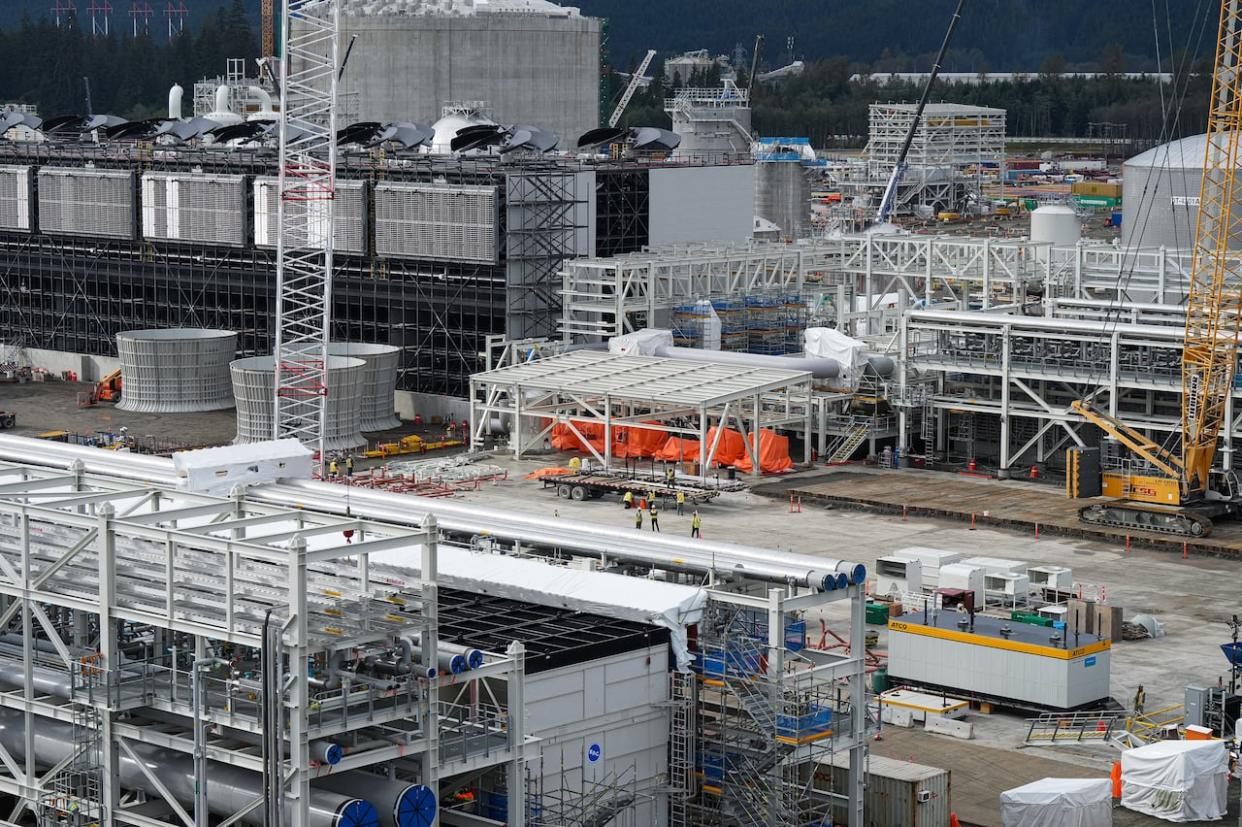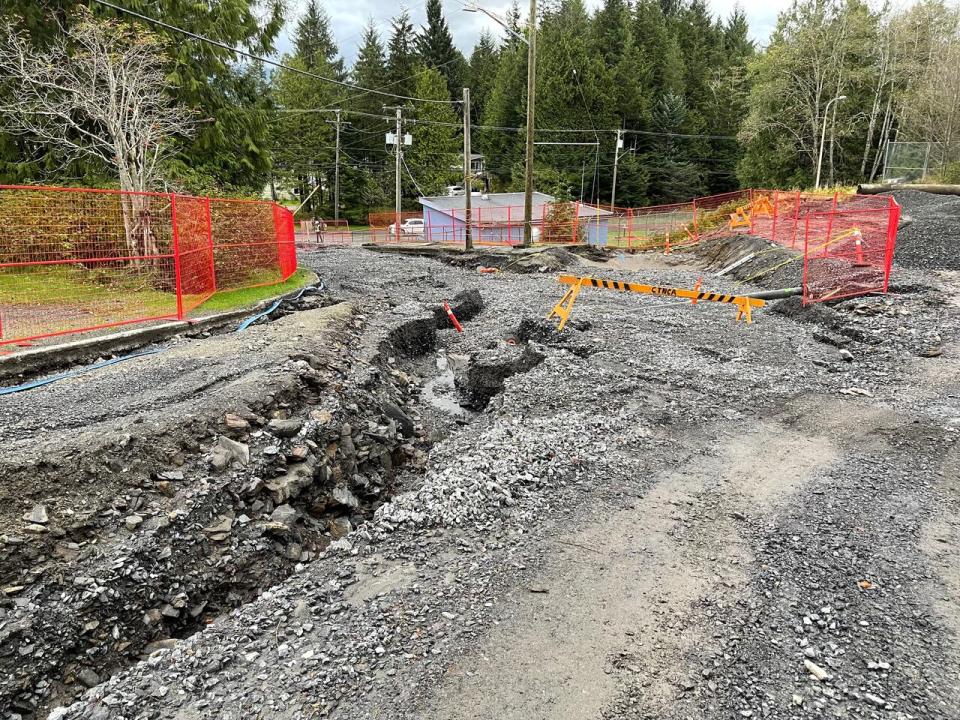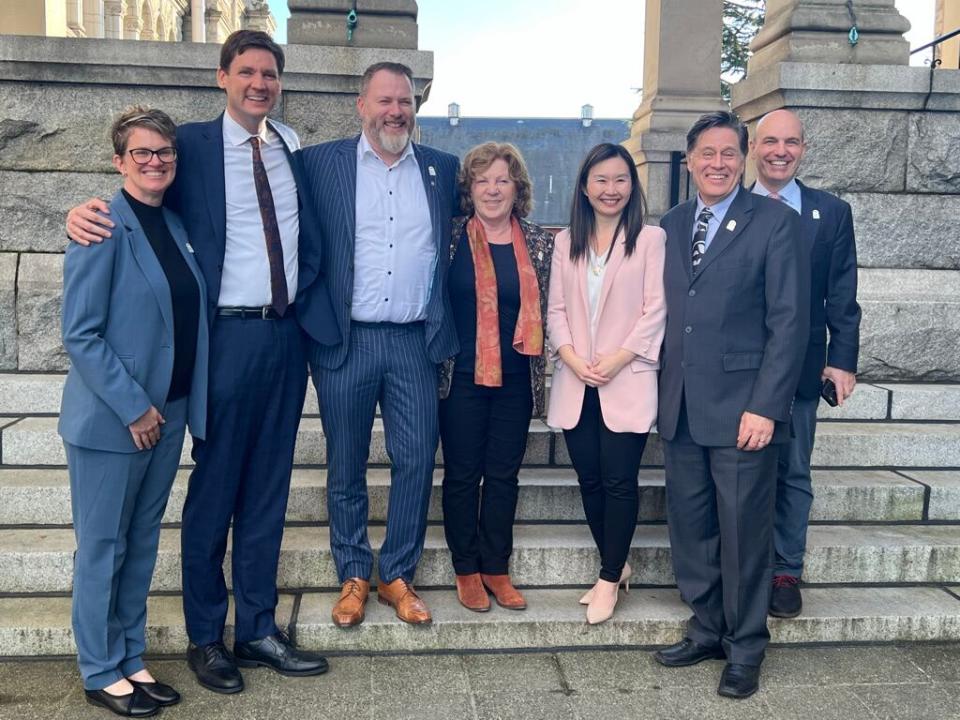B.C. budget grants $250M to northwest B.C. municipalities

The British Columbia government has committed $250 million over five years to support infrastructure and operations for municipalities in the province's northwest.
It's welcome news to local leaders from Vanderhoof to Haida Gwaii, who have spent the past decade fighting for a larger share of the revenue being created through major energy projects in the region.
"This is a return to the north of some of the wealth that the province generates in the north," said Prince Rupert Mayor Herb Pond, who also co-chairs the Northwest B.C. Resource Benefits Alliance.
"I'm smiling."
The alliance is a coalition of 21 local governments formed in 2014 to lobby the province for more funding to help cover the costs associated with the construction of major projects like the Coastal GasLink pipeline and LNG Canada export facility, which transport natural gas for processing and overseas export.
The governments argue that they have faced increased pressures from the projects in the form of increased road traffic and transient workers, but are not receiving the corresponding fiscal benefits since the bulk of the projects exist outside municipal borders and are not contributing to the tax base.

Prince Rupert's water infrastructure is 100 years old and in desperate need of replacement, according to Mayor Herb Pond. (Matt Allen/CBC)
They have pointed to the Peace River Agreement, which the province signed with eight local governments in northeast B.C., as a model to follow. That agreement, which was formerly known as the Fair Share Agreement and was renewed in 2015, provides ongoing annual funding to local governments in recognition of the large number of resource projects, such as dam construction and oil and gas fracking, that occur in the region.
Fort St. John, the largest municipality covered by the Peace River Agreement, receives approximately $26 million annually from the project, representing nearly 90 per cent of the city's capital projects budget with money being used for maintaining roads, upgrading public buildings and covering ongoing operating costs.
Pond says while it is not yet known how much money Prince Rupert or any other community will receive from the province, he anticipates using the funding for similar projects.
WATCH | A video produced by Fort St. John explains the Peace River Agreement:
"It means we will finally be able to keep up with our roads and keep up with our water infrastructure," Pond said.
"The idea of having roads that aren't filled with potholes on an ongoing basis, water lines that get replaced when they need to be replaced... those are the kinds of things that we will look at. It's a really big step forward."
Prince Rupert has been particularly hard hit by aging infrastructure with multiple boil-water advisories issued in recent years. One advisory last fall followed multiple line breaks that resulted in water gushing out of the ground, washing out streets and flooding people's basements.
Other local leaders were equally enthusiastic about the funding, with several present in Victoria for the announcement.
"We and all the communities in the northwest will now be able to afford to start upgrading our lacking infrastructure," Terrace Mayor Sean Bujtas wrote on Facebook.
"To put it in perspective, imagine we can now go from doing one major road project a year to five or six or even more."

North Coast MLA Jennifer Rice, Premier David Eby, Terrace Mayor Sean Bujtas, Smithers Mayor Glady Atrill, Municipal Affairs Minister Anne Kang, Prince Rupert Mayor Herb Pond, and Stikine MLA Nathan Cullen are pictured at the B.C. Legislature on Feb. 22, 2024. (Facebook/Gladys Atrill)
Pond said in future he can imagine the money going toward new projects like swimming pools or reducing taxes, in the short term he believes the focus will be on catching up on years of backlogged maintenance projects that cities simply couldn't afford.
"I think what people would most love to have is us actually fixing the roads and us staying on top of the maintenance of these items," he said.
"This is about how do we make the community more livable."


